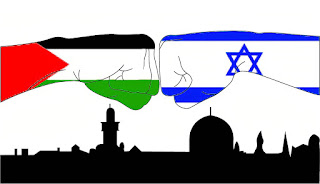The conflict between Israel and Gaza is a deeply rooted and
complex issue with historical, political, territorial, and ideological
dimensions. Summarizing the complexities, grievances, and perspectives of all
parties involved is a considerable challenge, but here's an overview of some
core issues:
- Historical
and Territorial Disputes:
- The
territory that is now Israel, the West Bank, and the Gaza Strip has been
historically and religiously significant to both Israelis and
Palestinians.
- The
establishment of the State of Israel in 1948 resulted in displacement and
loss of homes for many Palestinians, leading to deep-seated grievances
and a desire for a separate Palestinian state.
- Israeli-Palestinian
Conflict:
- The
conflict is a result of competing claims to the same land and a struggle
for self-determination and statehood for both Israelis and Palestinians.
- Israelis
generally cite historical and biblical connections to the land, as well
as the need for a secure Jewish state after the Holocaust.
- Palestinians
argue for their right to self-determination, statehood, and the right of
return for refugees displaced during the creation of Israel.
- Occupation
and Settlements:
- Israel's
occupation of the West Bank and previous occupation of Gaza, along with
the construction of Israeli settlements in these territories, are key
points of contention.
- Palestinians
view these activities as violations of international law and impediments
to the establishment of a contiguous, viable Palestinian state.
- Gaza
Strip Specific Issues:
- The
Gaza Strip, governed by Hamas since 2007, is under blockade by Israel and
Egypt, which severely restricts the movement of people and goods,
impacting daily life and the economy.
- The
blockade was imposed due to security concerns and a desire to prevent
weapons from reaching Hamas and other militant groups.
- Security
and Violence:
- Both
sides have experienced violence, including suicide bombings, rocket
attacks, military operations, and acts of terrorism, resulting in loss of
life and widespread fear and insecurity.
- Israel
often cites its need to ensure the safety and security of its citizens as
a primary reason for its actions.
- Political,
Religious, and Ideological Differences:
- Religious
and ideological differences contribute to the conflict, with deep-rooted
beliefs and narratives shaping the perspectives and actions of both
Israelis and Palestinians.
- Various
Palestinian factions, such as Hamas and Fatah, have differing approaches
and goals, adding complexity to the situation.
- Peace
Process and Negotiations:
- Numerous
attempts at peace negotiations have taken place, with agreements like the
Oslo Accords aiming to establish a path to a two-state solution. However,
progress has been limited and fraught with challenges.
Addressing the conflict requires a multifaceted approach
involving diplomacy, negotiation, international involvement, and efforts to
bridge the deep divides in historical narratives, security concerns, and
aspirations for statehood and self-determination. A resolution that respects
the rights and aspirations of both Israelis and Palestinians is crucial for a
sustainable and peaceful future in the region.




0 Comments